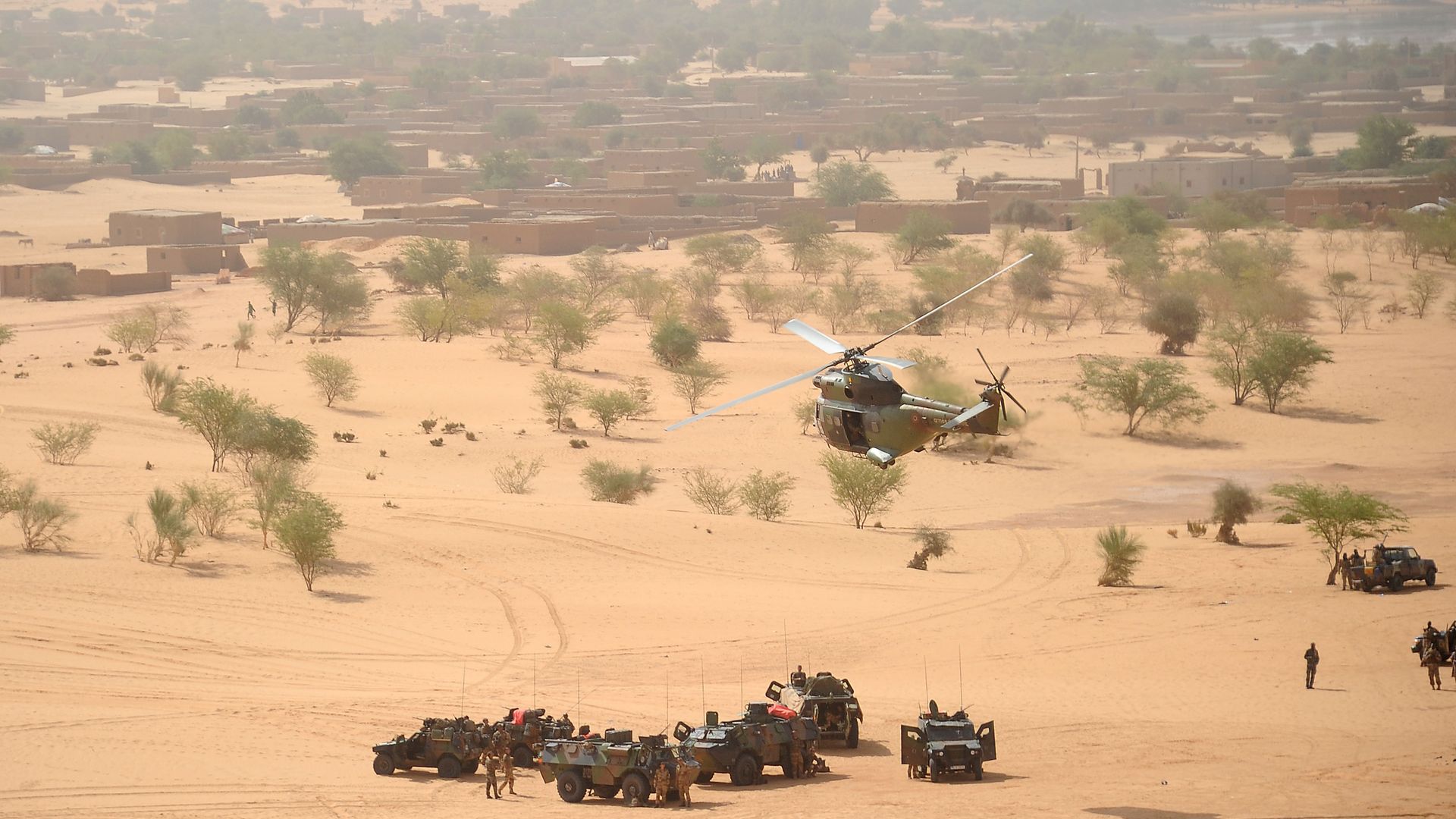
Emmanuel Macron is finding that overseas engagements can be difficult to disentangle from.
Crowds of Malians gather on the streets of Bamako as the smell of burning polyester wafts through the air. Another French flag has been set alight. Elsewhere, a tricolour adorned with a skull and crossbones is held high, flanked by signs that read “France, get out”.
If only France knew how.
In 2013, when president François Hollande launched France’s largest foreign military operation in Mali since the Algerian war, the aim was to rout out jihadists in the north of the country.
It was supposed to take a matter of weeks. Eight years on, with the conflict escalating, there is no end in sight. The fighting has spread across Mali and into neighbouring Burkina Faso and Niger, a battlefield four times the size of France itself. Last year was the bloodiest yet, claiming some 6,200 lives.
The war in the Sahel desert – just south of the Sahara – has been called France’s Afghanistan. Emmanuel Macron, the man who famously described his generation as one for whom “the crimes of colonisation are indisputable”, is under pressure to find the right exit strategy from this inherited war.
Yet this time last year, France actually increased its presence in the area, boosting its Sahel deployment by 600 to 5,100 troops, on what it calls Operation Barkhane.
A few weeks ago, in a summit with leaders of the countries affected by the fighting, Macron had been expected to announce the withdrawal of these extra forces. Instead, he said that France had no immediate plans to adjust its presence in the region.
Though there have been some significant victories – last year the French killed the chief of al Qaeda in the Islamic Maghreb, Abdelmalek Droukdel – Macron is under pressure from leaders in the area not to withdraw his forces at a time when jihadists remain in control of vast swathes of territory.
Only hours before the summit opened, a highway bomb blast in central Mali killed two soldiers, bringing the total Malian, UN and French losses to 29 in only the first two months of 2021.
“Right now it doesn’t look like local forces could stand on their own two feet,” says Elie Tenenbaum, a research fellow at the French Institute of International Relations. “They are blighted by endemic corruption, incompetence in the higher ranks and material deficiencies – they still strongly need French and foreign assistance.”
But Macron has said he has no intention of fighting an “infinite war” in the Sahel and has called on EU countries to offer more support to the operation, both to help him wage the campaign and to give him international cover.
The past 20 years of Western interventions in the Middle East and Africa have scarred the political establishment in France, just as they have in the US, UK and elsewhere. Jacques Chirac famously refused entreaties from George W Bush and Tony Blair to join them in their war against Saddam Hussein in Iraq in 2003.
In contrast Nicolas Sarkozy enthusiastically advocated military intervention in Libya in 2011. He persuaded David Cameron to join him, but not Barack Obama. One thing both adventures had in common is that they failed.
If France is to avoid a similar fate in the Sahel, the answer lies as much in diplomacy and aiding international development as in military strategy. “While France’s surface objective is an anti-terrorist campaign, its underlying objective is also to prop up these governments’ security and enable stabilisation,” says Benjamin Petrini, a research fellow at the International Institute for Strategic Studies.
French-speaking Africa and the wider Francophonie have an enduring importance in French politics and in the country’s sense of identity and importance. However, France’s military – which has been present in the region since the late 19th century – now needs to keep a low profile.
Growing resentment in these countries towards the former colonial power risks driving more people into the arms of the jihadists. The conundrum is that they need to stick around long enough to ensure a measure of stability, but the longer they do, the greater the agitation is for them to leave.
With the presidential election due in a year’s time, Macron’s party will be increasingly wary of how this protracted war would play in an electoral campaign. While support for the operation was high at the outset, it has steadily decreased as French forces became more embroiled. Recent polling shows that a slim majority of the public now oppose the operation.
Helpfully for Macron, military operations tend to play a marginal role in the domestic public debate. Less helpfully, his approval ratings remain low. As Tenenbaum puts it, “I don’t think the French public will need to go to the Sahel to find reasons to criticise him.”
What do you think? Have your say on this and more by emailing letters@theneweuropean.co.uk









